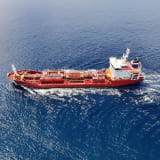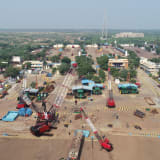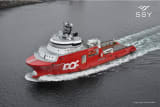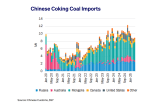
Responding to New Fuel: We turn our attention this week to new environmentally friendly ship types, particularly new fuel propulsion, and its impact on a few of the stakeholders in Japan and measures some of them have taken.
Ship Financing: Ship financiers in Japan are facing a new challenge for vessel financing as there is an emerging trend of requests from shipowners to entertain the idea of environmentally friendlier ship types running on new fuels (LNG, LPG, Methanol & Ammonia ). Whilst the shipping loan book carried by most banks well into 2025 consists mainly of conventional fuel vessels, there has been a gradual increase by owners for banks to consider writing loans for new fuel type vessels. There is still a ton of uncertainty revolving around the fuel supply and operational safety of some new fuel sources (for instance Methanol and Ammonia respectively) to say the least. But one thing that’s clear is that decarbonization is on the minds of all shipping players. Japanese lenders are therefore now faced with an enormous task of having to assess these new asset types carefully whilst finding ways to mitigate asset and residual risks given the uncertainties.
Shipbuilders: As major Japanese shipbuilders turn a modest profit this fiscal year whilst sitting on a historically large orderbook, they are seeking new methods to increase productivity and ramp up capacity, resulting mainly from labor shortages. In addition, they now face a new task of understanding the complexity involved in building new fuel vessels and also equipping new fuel saving devices (roto sails, air lubricators etc). To kill two birds (manpower shortage and complexity challenges) with one stone, shipbuilders are turning to technology to further automate their ‘smart’ factories. This is not an easy task especially against the backdrop of a global chip shortage. Shipyards also feel the need, more so than ever, to place heavier reliance on technology in the designing phase as Artificial Intelligence (AI) continues to take center stage. Building this from the ground up, shipyards have also taken the initiative to participate in Maritime Digital Engineering courses in order to enhance the capabilities and skill sets of its talent pool.
Shipowners: Beyond the commercial risks of investing in a ‘new’ vessel type, shipowners are faced with a need to upgrade their technical management and crew capabilities to run such vessels safely and efficiently. Whilst the demand by long-term charterers for new fuel vessels has been lagging for the bulk sector, there has been major progress in the other shipping sectors (particularly the container and PCTC sector). Shipowners are starting to realize that it is only a matter of time, and rather than resist change, they will have to get on the learning curve to develop the required know-how, sooner rather than later. The reality is setting in for some owners that they could end up not being the ‘chosen one’ when such requirements surface in future if they do not have the expertise of running such new fuel vessels.
The construction of such new fuel assets involves substantial additional costs relative to the price of conventional fuel assets. It is a big ask of shipowners to invest in new fuel orders without the support of a ‘life span’ charter from industry players. That being said, we are starting to see major owners leading the charge with their willingness to share the fuel type risk with their charterers via shorter-than-ideal duration charters.
We expect this trend to continue into 2024 and 2025 as the alternative fuel infrastructure continues to develop.
Articles
You may also be
interested in
View allGet in touch
Contact us today to find out how our expert team can support your business













